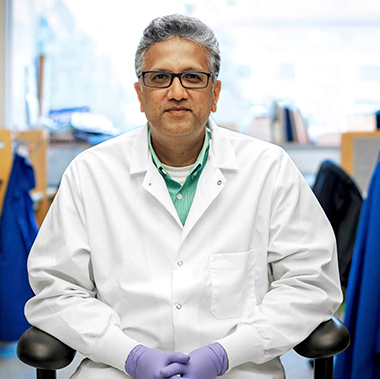

The recent Supreme Court ruling in Amgen v. Sanofi reminds patent practitioners that the scope of disclosure defines what has been enabled and that purely functional claiming can be problematic.

The recent Supreme Court ruling in Amgen v. Sanofi reminds patent practitioners that the scope of disclosure defines what has been enabled and that purely functional claiming can be problematic.

A recent study from Ethicon and the Cleveland Clinic outlined opportunities and barriers to better sustainability practices in operating rooms. We spoke with Vishnu Kalra, President, U.S. Ethicon, to learn more about the study’s findings, Ethicon’s efforts to develop more sustainable products and practices, and how other companies can get started.

Shuvo Roy, Ph.D., Professor of Bioengineering at UCSF and Technical Director of The Kidney Project, and his research partners have developed an artificial kidney constructed of semiconductor silicon wafers that remove waste and toxins from the blood and a cell therapy unit that replicates other kidney functions. Their prototype, powered entirely by blood pressure, filtered blood and created urine in a pre-clinical trial.

As technology component pricing continues to rise, MedTech manufacturers are applying proven methods and exploring new approaches to maintain profitability and extend product lifecycles.

The recently announced “Refuse to Accept Policy” signed into law under section 524B of the Federal Food, Drug, and Cosmetic Act (FD&C Act) gives the FDA more traction to encourage the medical device manufacturing industry to utilize software bills of materials that help to incorporate supply chain security. The ISA/IEC 62443 series of standards defines a secure product lifecycle process that can be adopted by medical device manufacturers to identify and manage the security risks of all external components used within the product.

Not all use cases are good candidates for machine learning. In this column we look at cases where AI/ML may be appropriate and when building a traditional algorithm to solve a problem is a better choice.

A Venture Capitalist recently joked that to fund a startup, all one must do is choose a URL that ends in ‘.ai’. Although he was not serious, it was an acknowledgment that companies pursuing AI are getting much attention, and there is a fear of missing out (FOMO) in the investment community if one of…

At Device Talks Boston in May, Ronald Kurz, Sr. Director and GM at Canon Virginia, Kathryn Unger, Sr. Mgr. of Global ESG Communications at Boston Scientific, and David Ettl, COO at Gradian Health System, addressed the question, how can we make medical products sustainable?

Smart hospitals are revolutionizing health care with the help of AI, IoT and robotics. Following are the latest technology and data analytics tools and trends that are helping these hospitals of the future provide safer, more personalized care.

As 3D printing gains a more prominent place in the manufacture and protoyping of medical devices, advances in technology and materials are expanding indications. We spoke with John Kawola, CEO of Boston Micro Fabrication (BMF), about the move toward micro 3D printing and how this technology is supporting the drive for miniaturization and minimally invasive medical treatments.